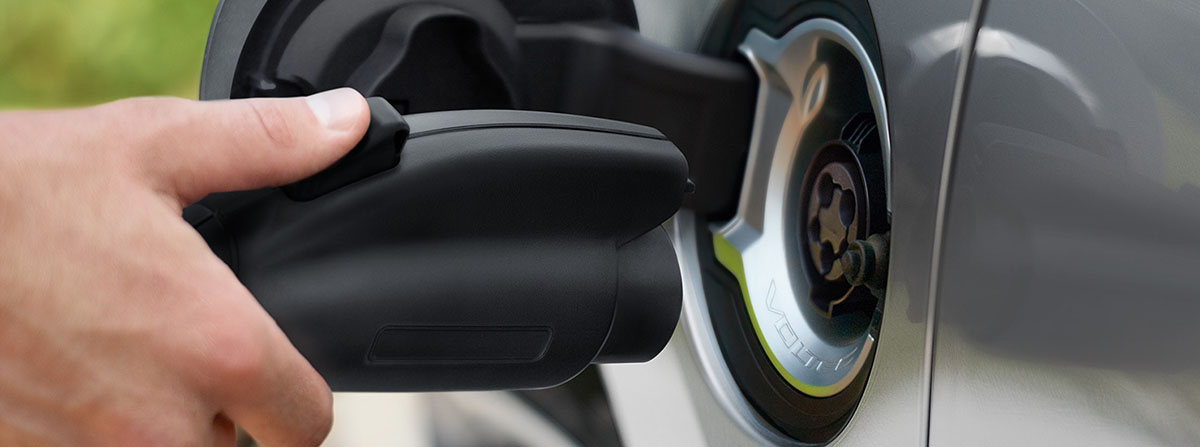
 Your Credit Estimate
Your Credit Estimate
 Your Credit
Your Credit
Your zip code helps us provide you with the most accurate vehicle pricing and vehicle availability.
We estimate your credit score to give you an idea of your monthly payments. To get an accurate payment amount, complete our credit application by clicking the Start Credit Application button below.
start credit application
The automotive industry is currently going through the next big shift. Just a few years ago, it seemed like every automaker was working towards the first autonomous self-driving car sold to consumers in mass market. We’re not sure what happened to the autonomous car race, but most of the automakers in the industry are talking electric vehicle (EV) production and jumping off the oil and gasoline bandwagon. Well-known automakers like Volkswagen, and large automobile groups like Stellantis, are going into the future of EVs with full force, but they’re not without competition, On the other end of the spectrum, many automakers are still fighting to keep internal gas combustion engine powertrains at the forefront of their lineup, even if that means making hybrids popular again.
Back in 2019, Kia Corp (then Kia Motors) announced that the automaker was going to go all-electric, and shared with the world the Kia Futuron concept. Fast-forward to today, and Kia is launching the EV6, an all-electric compact SUV. Stellantis, the fourth largest automotive group, comprising of Fiat Chrysler Automobiles (FCA) and the Groupe PSA, have announced plans to rejuvenate every automotive brand with more green vehicles, and not just hybrids. Those days are over – plug-in hybrid electric vehicles (PHEVs) and all-electric vehicles are the future. Even Dodge, the high-performance high-octane muscle car automaker announced its own line of all-electric vehicles, eMuscle.
Stellantis isn’t the only big player in this game. German automobile-maker Volkswagen became the world’s largest car manufacturer in 2016 when it overtook Toyota – keep this in mind for later. With the help of new Chairman Herbert Diess, VW has reinvented itself and is aggressively going after electric vehicle (EV) development as the new focus for the automotive group. Having already poured billions of dollars into EVs, VW is currently the number two manufacturer of EVs, following the one and only Tesla. Breaking back in the North American market with the ID.4, 2021 may just push VW over the edge and past their competition. The goal is to be the leading manufacturer by 2025, by Kia Corp has its own plans to do the same with its Plan S Strategy. Who will win?
Even with all of these automakers jumping over to a future of all-electric mobility, there are still automakers out there waving the gasoline-coated flags. The furthest they will go is producing a hybrid vehicle model, that, in essence, is just a gasoline internal combustion engine that converts gasoline into electricity to power an electric motor and offer more fuel efficiency. Bringing Toyota back to the discussion, EVs don’t have a future with this automaker. It doesn’t make a whole lot of sense – if VW technically owns Toyota, then one would think VW calls the shots, but also like Stellantis, every brand has its own top dog that will set the course for development.
A few months ago, we also learned of a very interesting vehicle. Called the Koenigsegg Gemera, this was a hybrid vehicle unlike any other. Combining three electric motors – one for each rear wheel, and one for the crankshaft to power the front wheels – the Koenigsegg Gemera blends in well with other EVs while still putting an internal combustion engine as the main source of power, with a Twin Turbo 2.0-liter 3-cylinder engine, able to generate about 600 horsepower and 440 lb-ft of torque, under the hood.
Toyota isn’t alone in keeping fossil fuels at play, but it is a part of a dwindling market. Despite the harsh attitude towards green cars, Toyota has also been known to produce PHEVs. While automakers rely on traditional gasoline-powered vehicles to bring in the profits, and the distress the semiconductor chip shortage is placing on automakers and EV production, the industry is currently seeing a level of disruption that could span for years. Anything could happen at this point. Follow along with what’s new for the automotive industry when you follow us on NowCar social media.